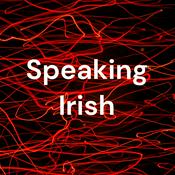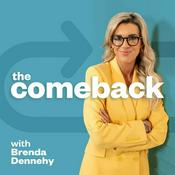30 episodes
GM Aman Hambleton - His London System Course, Chessbrah, and Winning Habits 🎙️ [No Board Needed]
20/2/2026 | 1h 20 mins.00:00 Intro01:31 The Chessbrah Journey09:40 The Impact of the Chess Boom12:57 The Educational Value of the Channel18:33 Building Habits Series30:11 The Role of Blitz in Improvement36:08 Creating the London System Course40:48 Unique Aspects of his London Course45:59 Connecting Openings to Middlegame54:33 Conceptual Approach and Knowing Crucial Ideas58:09 Balancing Engine Lines and Practical Play01:03:36 Speed Chess Championship Live Commentary01:12:20 The Future of Chess Content CreationGrandmaster Aman Hambleton joins the podcast to unpack the real origin story of Chessbrah, from two Canadian juniors casually “streaming” to each other with one viewer, to building a long-running, community-first brand that’s now approaching 400K subscribers. He reflects on the 2020 chess boom (lockdown + Queen’s Gambit) as an accelerator, but emphasizes that Chessbrah’s durability comes from stickiness: entertainment that keeps people watching, and instruction embedded naturally in real games, blunders, and commentary.The conversation then shifts to Aman’s first Chessable opening course, the London System repertoire, covering why system openings are realistic for most improvers, how his London is differentiated, and why practical, human-centered choices sometimes beat “engine purity.” Finally, he discusses commentating elite speed chess events, the role of the evaluation bar for spectators, and the direction of chess content into the future.FM Tarık Selbes - How Yağız Kaan Erdoğmuş Became the Strongest 14-Year-Old in Chess History
13/2/2026 | 2h 12 mins.Contact FM Tarik Selbes here: https://lichess.org/@/nuagesgrisTarik's chess history blog 'Cafe Chigorin': https://tinyurl.com/yp9hhmyz
00:00 Intro
02:23 Enters Tarik Selbes
05:42 The Puzzle Grind That Built Monster Calculation Skills
12:23 The Importance of Calculation in Chess
15:36 His Work with GM Evgeny Romanov
22:15 Positional Play and Dorfman's Influence
27:09 Showing Games: Static vs. Dynamic Play
30:49 Yagiz's Early Positional Mistakes
35:09 Erdogmus - Nitish
39:47 Shaik - Erdogmus
43:59 Excellent Calculation: Erdogmus - Sapenov, 2023
49:40 His Resiliency: Santiago - Erdogmus
51:42 Present Time: Erdogmus - Svidler, 2025
55:44 Strategic Maturity: Erdogmus - Vachier-Lagrave, 2025
59:51 Erigaisi - Erdogmus, 2026: The Exchange Sacrifice That Shocked the Chess World
01:06:05 Does Yagiz Know Chess Classics and Old Masters?
01:09:35 Zurich 1953: Why You Should Read Old Books Skeptically
01:14: 36 Is Blitz Good For Your Chess?
01:21:25 Tarik Selbes’ IM Journey at 40 — Adult Improvement Tips
01:31:26 The Psychological Pressure of Being a “Future World Champion”
01:44:14 How to Define 'Talent' in Chess
01:53:54 Kids vs Adults
01:58:02 Opening Work
02:02:02 Tarik's Book Project on Max Euwe
02:04:23 The Rise of Turkish Chess
In this special podcast episode, I’m joined by FIDE Master and longtime friend Tarik Selbes to break down the incredible rise of Turkish chess prodigy Yağız Kaan Erdoğmuş — a player many believe has future World Champion potential. Even Magnus Carlsen has called him the strongest 14-year-old chess player ever, while Hikaru Nakamura has highlighted his extraordinary calculation skills.Tarik shares rare behind-the-scenes insights from training camps where he worked as translator for Russian coach Evgeny Romanov, revealing: • How Yağız built monster-level calculation through massive puzzle training • Why modern prodigies train differently from past generations • The key positional weaknesses he had, and how they were fixed • The balance between dynamic and static factors (Dorfman-style thinking)We also analyze instructive games against legends like Peter Svidler and Maxime Vachier-Lagrave, showing how Yağız’s play has matured from pure tactical brilliance into world-class positional mastery.Beyond prodigy development, we dive into:Talent vs hard work Chess psychology and pressure at the highest levelWhy kids today train differently than adults who grew up on chess booksHow adult improvers can still make huge progress (Tarik’s IM norm journey at 40!)The rise of Turkish chess culture Tarik recently completed his final IM norm at age 40 and now needs to reach 2400 ELO to become an International Master. He is an inspiration for adult improvers.keywordschess, Yagiz Kaan, Yagiz Kaan Erdogmus, Tarık Selbes, chess training, calculation, positional play, chess prodigy, chess improvement, strategic training, chess analysis, chess, chess strategy, chess psychology, chess talent, chess education, chess culture, chess improvement, chess prodigies, chess classics, chess learning, adult chess improvement,Sam Belnap - How He Moved From 700 to 2000 ELO on chess.com in 3.5 Years 🎙️ [No Board Needed]
27/1/2026 | 1h 19 mins.Sam's Training Plan: https://docs.google.com/document/d/1E1r69Q46gZX02mE5hYPjdVw4VXdz0KfjrTjvLdf3z3s/edit?tab=t.0Sam's chesscom profile: https://www.chess.com/member/eyecandewit
In this podcast episode, I’m joined by my own student Sam Bellnap, who moved from 700 to 2000+ Chess.com Rapid (peaking near 2100) in around 3.5 years. Sam tells the full story and shares the study routine that helped him reach 2000. If you’re an adult improver chasing a rating goal, this conversation is a reality check and a roadmap.We get very practical: Sam explains his study plan, why he keeps openings simple (plans over memorization), how he uses targeted training to fix weaknesses (rook endgames were a big one), and how he studies strategy without getting lost in engine “best moves.” We also talk about the weekly group lesson format, how coaching helps identify high-impact leaks you can’t easily spot yourself, and why Sam believes structure beats “random grinding.”The real gem is Sam’s routine: clear start/stop cues, a pregame process goal (instead of Elo goals), and a postgame method that reduces tilt. If you struggle with rating anxiety, inconsistent performance, or not knowing what to study next, this episode is for you. Download Sam’s study guide (linked below) and try it, then tell us what changed.Keywords: adult chess improver, chess improvement, how to reach 2000 elo, chess.com rapid, chess study plan, chess routine, rating anxiety, blunder check, endgame training, rook endgames, chess coaching, process goals, chess habits00:00 Introduction to Sam's Chess Journey03:49 Impact of Group Lessons11:12 Detailed Study Guide Breakdown13:26 Behavioral Cues: Entry Cue and Exit Cue17:51 Opening Study24:42 Opening Strategies and Pawn Structures27:33 Middlegame Study 31:48 Endgame Study36:09 Grandmaster Thinking42:25 Tactics Study45:22 Setting Process Goals52:00 Square Breathing and Meditation54:41 Focus and Emotional Control During Games59:16 Jumping 250 ELO in Three Months01:02:14 Post-Game Reflection and Analysis01:06:06 Learning from Mistakes01:14:12 Why Chess?GM Surya Ganguly on Openings, “Why” Questions, and Chess Improvement 🎙️ [No Board Needed]
20/1/2026 | 1h 1 mins.Surya's Chessable Page: https://www.chessable.com/author/suryaganguly/Surya's 1. e4 Repertoire Part 1: https://www.chessable.com/lifetime-repertoires-suryas-1e4-part-1/course/353840/Surya's YouTube Channel: https://www.youtube.com/user/SuryachessProChess Training: https://prochesstraining.com/GM Ganguly on the Perpetual Chess Podcast: https://www.youtube.com/watch?v=NLy5B3n5aOQ00:00 Intro02:29 Understanding vs. Memorization09:13 Opening Advantage is Not Everything11:19 How Surya Structures His Opening Courses18:30 Explaining Strange Looking Moves in the Najdorf22:27 Lessons From Team Anand25:20 Stories From Training Indian Top Players34:22 System Openings vs. Mainlines48:40 His YouTube Journey53:01 Pro Chess Training56:15 WHY We Play ChessIn this episode, I’m honored to welcome Surya Ganguly, one of India’s most respected grandmasters and opening theoreticians. A former child prodigy, six-time Indian Champion, Asian Champion, and former world #55 with a peak rating of 2676, Surya was also a key member of Viswanathan Anand’s World Championship team—achieving a remarkable 100% score as part of the preparation squad. Many chess fans also know Surya from his deep, principled work as a coach and author, including his latest Chessable course: Lifetime Repertoire: 1.e4 – Part 1 vs the Sicilian.Instead of repeating questions from his excellent appearances on the Perpetual Chess Podcast, this conversation goes deeper into how openings should be learned and taught. We explore understanding vs memorization, the importance of asking why in opening study, integrity and consistency in building a repertoire, system openings versus main lines, and how Surya adapts his teaching from 1400-rated players to elite stars like R Praggnanandhaa and Vidit Gujrathi.keywords: chess openings, Surya Ganguly, chess education, Chessable, opening preparation, chess strategy, memorization vs understanding, chess courses, chess training, creativity in chess, AnandNM Robert Ramirez - CoachChamps 2025 Winner Reveals His Winning Training Methods 🎙️ [No Board Needed]
25/10/2025 | 1h 2 mins.Info on CoachChamps 2025: https://www.chess.com/events/info/2025-coachchamps
00:00 Remembering Daniel Naroditsky02:59 Podcast Begins05:55 Takeaways from Different Rating Bands11:08 Opening Preparation17:20 Training Plans25:30 Time Management and Checkpoints27:06 Chesstempo Blitzset34:43 Psychological Aspects of Coaching37:56 Reflections on Coaching Styles45:51 How Much They Can Improve in a Month49:24 Future Improvements and Feedback51:37 Conclusion and Final ThoughtsIn this conversation, NM Robert Ramirez, an acclaimed chess coach and the CoachChamps 2025 champion, discusses his experiences and insights from CoachChamps 2025. He shares his coaching techniques, the importance of adapting to students' needs, and the psychological aspects of chess training. The conversation delves into specific strategies for different rating levels, the significance of tactical training, and the impact of preparation on performance. Robert emphasizes the need for consistency and clarity in coaching, while also reflecting on the challenges and successes of his students during the tournament.Keywords: chess coaching, tournament strategies, student performance, chess techniques, coaching methods, psychological aspects, chess tactics, training plans, time management, chess improvement
More Education podcasts
Trending Education podcasts
About The Chess Cognition Podcast
A deep dive into the world of chess through the lenses of cognitive science, psychology, and teaching. Join the leading players, coaches, and scholars as they explore the intricacies of chess and the mental processes that drive success on and off the board.
Podcast websiteListen to The Chess Cognition Podcast, The Daily Stoic and many other podcasts from around the world with the radio.net app

Get the free radio.net app
- Stations and podcasts to bookmark
- Stream via Wi-Fi or Bluetooth
- Supports Carplay & Android Auto
- Many other app features
Get the free radio.net app
- Stations and podcasts to bookmark
- Stream via Wi-Fi or Bluetooth
- Supports Carplay & Android Auto
- Many other app features


The Chess Cognition Podcast
Scan code,
download the app,
start listening.
download the app,
start listening.








































